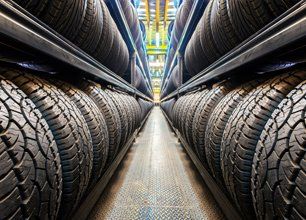The Ecological Advantages of Appropriate Tire Maintenance
Maintaining correct tire care is commonly ignored, yet its effect on the atmosphere is profound. From reducing fuel intake to decreasing emissions output, the advantages are far-ranging. Correct tire maintenance not just expands the life-span of tires yet additionally lowers garbage dump waste and contributes to boosted air quality. The interconnectedness of these benefits highlights the critical function that basic upkeep methods can play in promoting ecological sustainability.
Minimized Fuel Intake
Improving tire upkeep practices can lead to a considerable decrease in fuel usage for lorries. According to the United State Department of Energy, underinflated tires can lower gas mileage by 0.2% for every 1 psi decrease in stress in all 4 tires.
Along with tire stress, regular tire rotations and positionings also play an important role in gas efficiency. Erratically used tires can raise fuel usage as the engine functions harder to preserve rate and traction. By keeping appropriate alignment and turning tires at suggested periods, motorists can make certain even prolong the life and wear of their tires, ultimately saving gas and minimizing their carbon footprint.
Extended Tire Life Expectancy
Extending the lifespan of tires is an essential facet of reliable automobile maintenance techniques that can generate cost financial savings and environmental advantages over time. By correctly keeping tires, vehicle drivers can substantially lengthen their use, lowering the frequency at which new tires require to be manufactured and old ones dealt with. This not only conserves important resources however likewise lessens the power and exhausts connected with tire manufacturing and disposal procedures.
Routinely examining tire pressure, turning tires, and making sure appropriate placement are essential action in expanding tire life-span. Sufficient step deepness is essential for optimum grip and safety and security, but it additionally contributes in how much time tires can be used prior to requiring replacement. In addition, avoiding aggressive driving habits that increase tire wear, such as extreme stopping and doglegs, can better boost tire toughness.
Ultimately, raising the durability of tires with aggressive maintenance not only profits the environment by minimizing waste and saving resources but likewise results in set you back savings for lorry proprietors by delaying the demand for brand-new tire purchases.
Lower Exhausts Output
Effective tire maintenance practices contribute to a decrease in discharges outcome, aligning with environmental sustainability goals in the vehicle industry. By keeping ideal tire stress levels, drivers can aid minimize these unfavorable environmental effects.
In addition, well-maintained tires also improve grip and lower rolling resistance, better improving fuel effectiveness. This, subsequently, lowers the amount of exhaust gases launched right into the environment. Furthermore, making sure tires are appropriately inflated and straightened his response can expand the lifespan of the tires, lowering the frequency of tire substitutes and the associated environmental prices of tire production and disposal.

Lowered Land Fill Waste
Offered the positive influence of appropriate tire upkeep on reducing exhausts outcome, one more substantial environmental advantage is the potential for lowered land fill waste. By ensuring that tires are effectively pumped up, aligned, balanced, and revolved regularly, their life expectancy can be substantially extended.

Improved Air Top Quality
Enhancing air high quality via appropriate tire maintenance practices is a crucial aspect of lasting ecological stewardship. When tires are underinflated, they develop a lot more rolling resistance, leading to enhanced fuel consumption and greater exhausts of unsafe toxins such as carbon monoxide and nitrogen oxides. Properly filled with air tires not just boost gas effectiveness yet also lower the quantity of contaminants launched into the air.
Moreover, well-kept tires with proper step depth and placement add visit the site to safer motoring conditions, minimizing check the chance of crashes that can result in the release of additional toxins into the environment. By extending the life-span of tires via routine upkeep and rotation, less tires are thrown out too soon, reducing the environmental impact of tire disposal and manufacturing processes.
Conclusion
In final thought, appropriate tire upkeep uses many ecological advantages. It is necessary for individuals to prioritize tire maintenance as a straightforward yet reliable method to shield the environment for future generations.
Correct tire maintenance not just expands the life expectancy of tires yet additionally lowers land fill waste and adds to enhanced air top quality - morris tire service. By maintaining proper positioning and turning tires at suggested intervals, drivers can guarantee even extend the life and wear of their tires, ultimately conserving gas and minimizing their carbon footprint
By effectively preserving tires, motorists can considerably lengthen their functionality, lowering the regularity at which new tires require to be produced and old ones disposed of.Frequently checking tire pressure, rotating tires, and making certain proper positioning are essential actions in expanding tire life-span. Furthermore, making certain tires are correctly blown up and aligned can extend the life expectancy of the tires, reducing the frequency of tire replacements and the associated ecological prices of tire manufacturing and disposal.